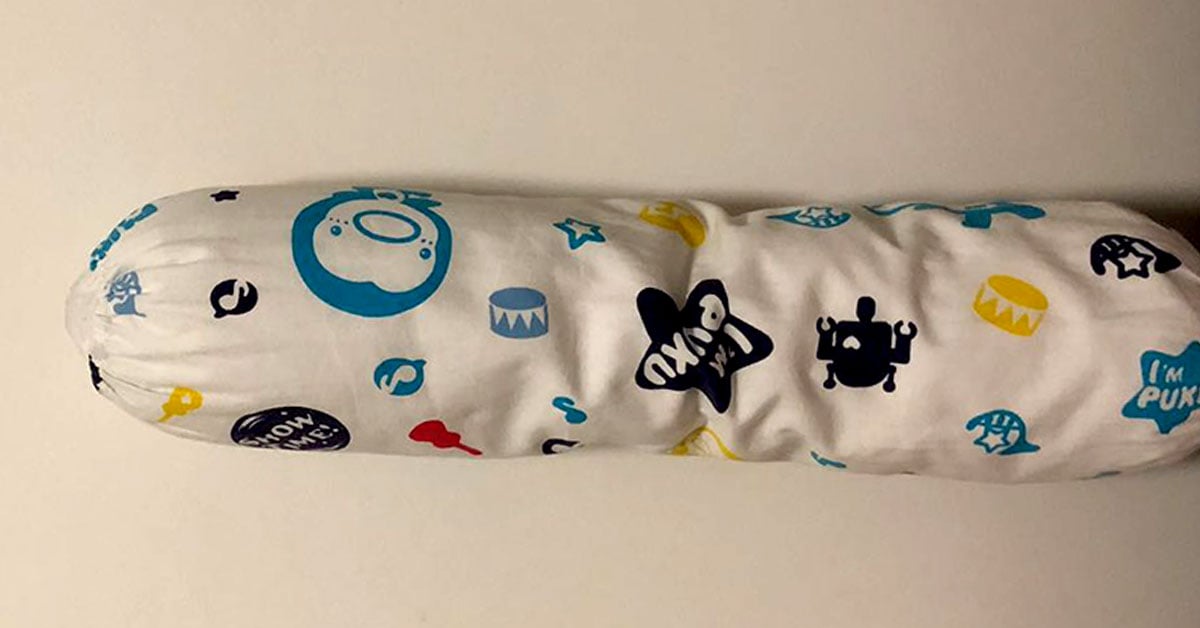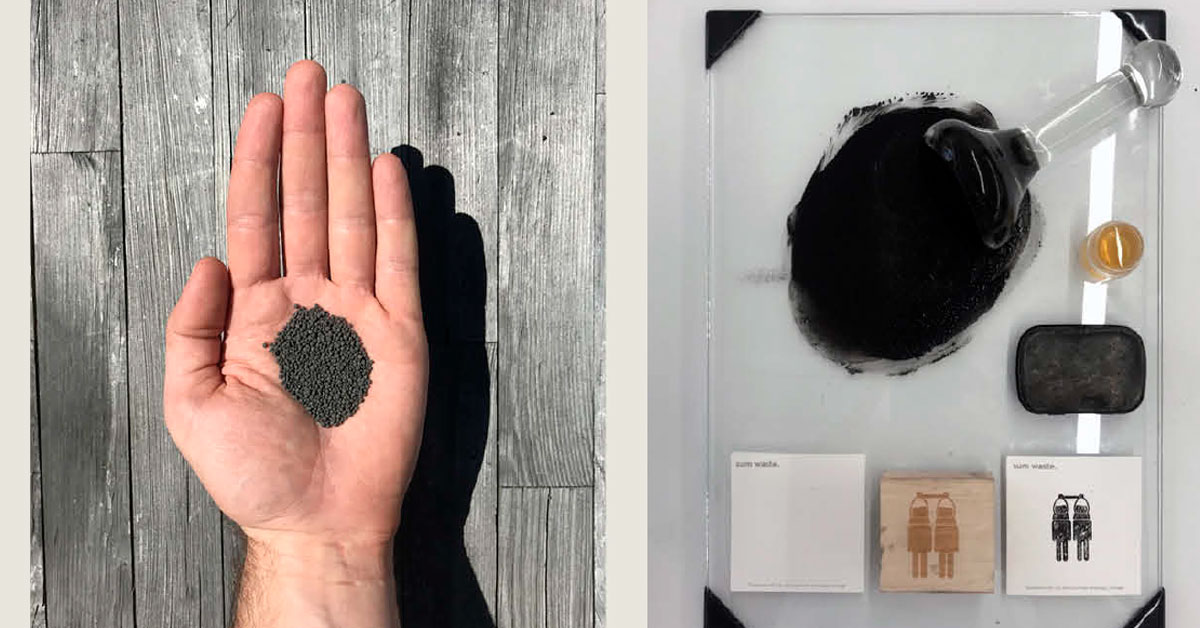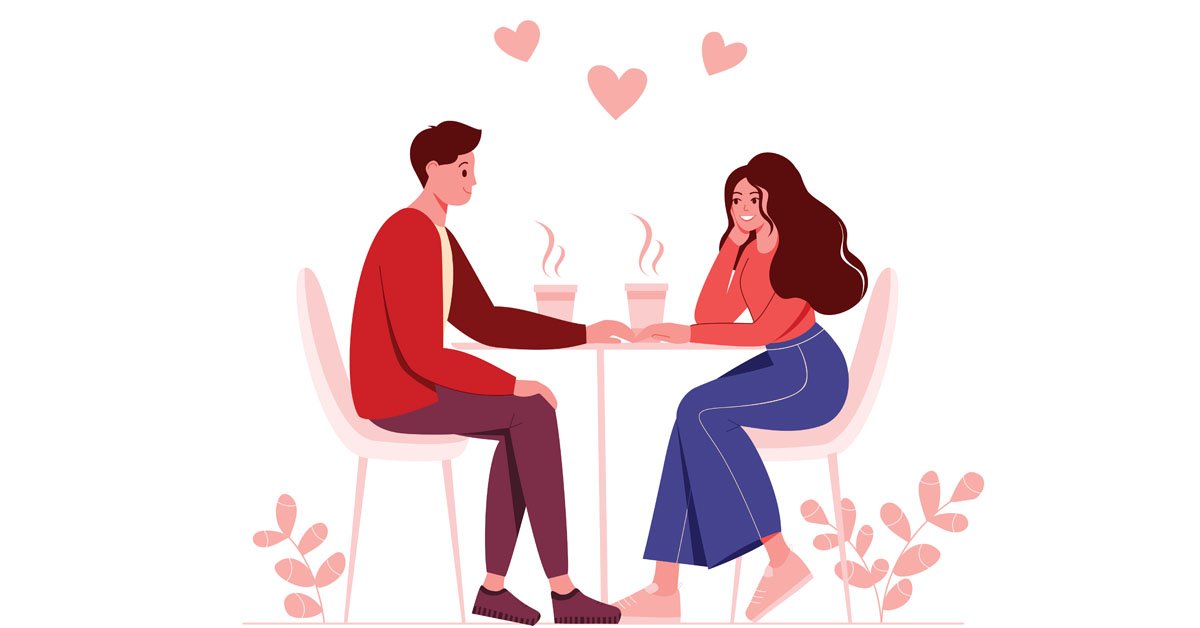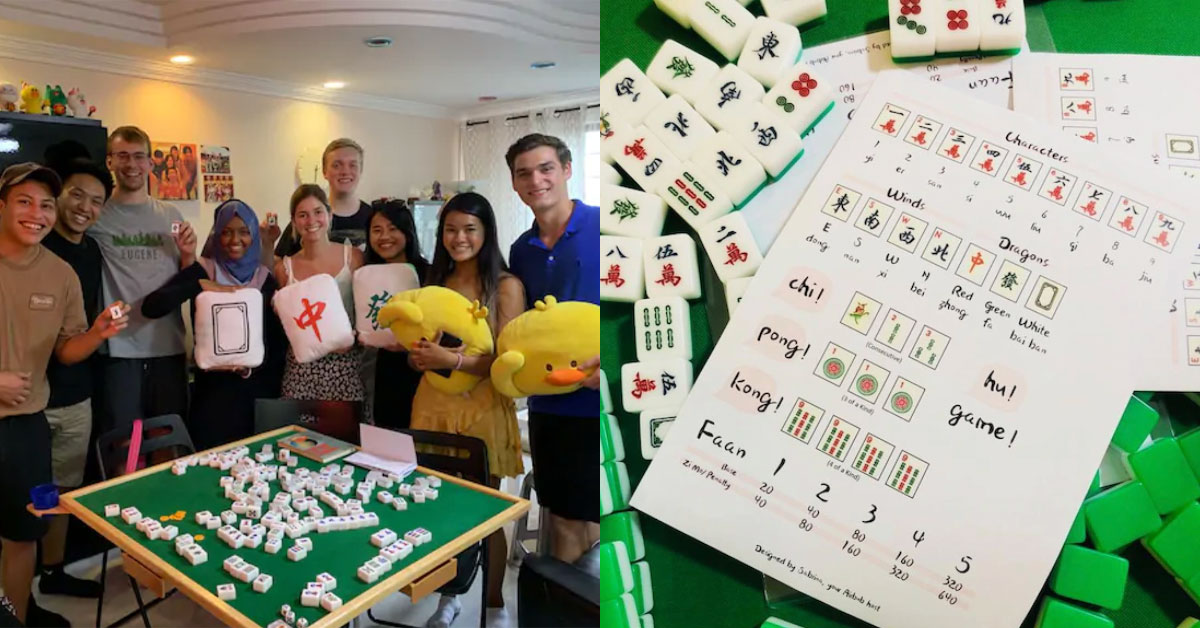Everybody has a chou chou, whether you like to admit it or not.
For those who are unfamiliar with this, chou chou means “stinky” in Mandarin, and refers to an object that provides a sense of comfort and security.
Chou chous are usually a rarely-washed bolster, a small pillow or a favourite stuffed toy that have been with their owner for many years (or even decades).
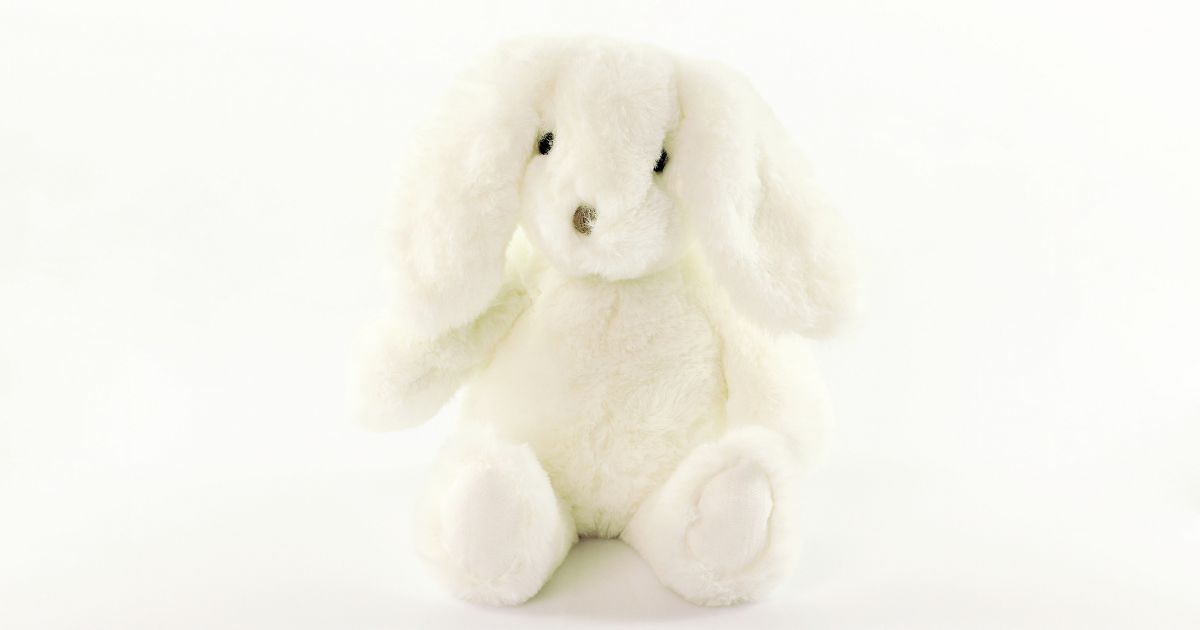
A study has shown that 53% of Singaporeans above the age of 18 still sleep with a chou chou, with 61% being between 25 and 34 years old.
It’s rather strange how we’re so obsessed with an old stuffed toy or bolster that is quite literally hanging by a thread, and still choose to keep it even though we could easily buy a new replacement that looks much better.
Have you ever wondered why this is so?
Reader: No, not really. Me and my chou chou are for life.
Well, whether you’ve wondered or not, there’s actually science behind our obsession with our chou chous.
Why Chou Chous Are Called Chou Chous
To understand why we’re obsessed with our chou chous, we have to first understand why they’re called chou chous.
Reader: Yeah, why would you call your stuffed toy “stinky”?
The reason is that, well, many chou chous smell chou chou (stinky).
This is because over the years, chou chous accumulate things like oil, dirt, sweat, sebum, saliva, and dead skin cells, causing them to smell a little stinky.
These residues create a breeding ground for things like mould and bacteria, which don’t exactly have a pleasant smell.
The residues also invite unwanted guests like dust mites to make their home in your beloved chou chou.
Dust mites love to eat human cells, and after eating, they’ll do the number two.
In your chou chou.
Reader: Are you saying that my chou chou is full of shi-
Anyway, while your chou chou may be chou chou (stinky), dust mites aren’t really harmful unless you have asthma. So the only thing you’ll really have to deal with is the smell.
And if you’ve been sleeping with the same chou chou for many years, then I guess you’re fine.
We’re Built To Crave Comfort
The reason we love our chou chous so much is that they provide much needed comfort, and this can be proven by a study conducted from 1957 to 1963.
Back then, the study was conducted on monkeys.
Ok, I know what you’re thinking, you’re not a monkey.
But, monkeys are actually considered our “cousins” and they often demonstrate “humanlike” behaviour like shaking their heads to indicate “no”, laughing when they’re tickled, and stress eating.
And you demonstrate “monkeylike” behaviour too because you do monkey business all the time.
During the experiment, known as Harry Harlow’s Monkey Mother Experiment, young monkeys were given two choices a few hours after they were born.
They had to choose between a fake mother made of wire which was connected to a milk bottle (we’ll call this one the “wire mother”) and a fake mother that didn’t have milk but looked like a monkey with clothes (we’ll call this one the “cloth mother”).
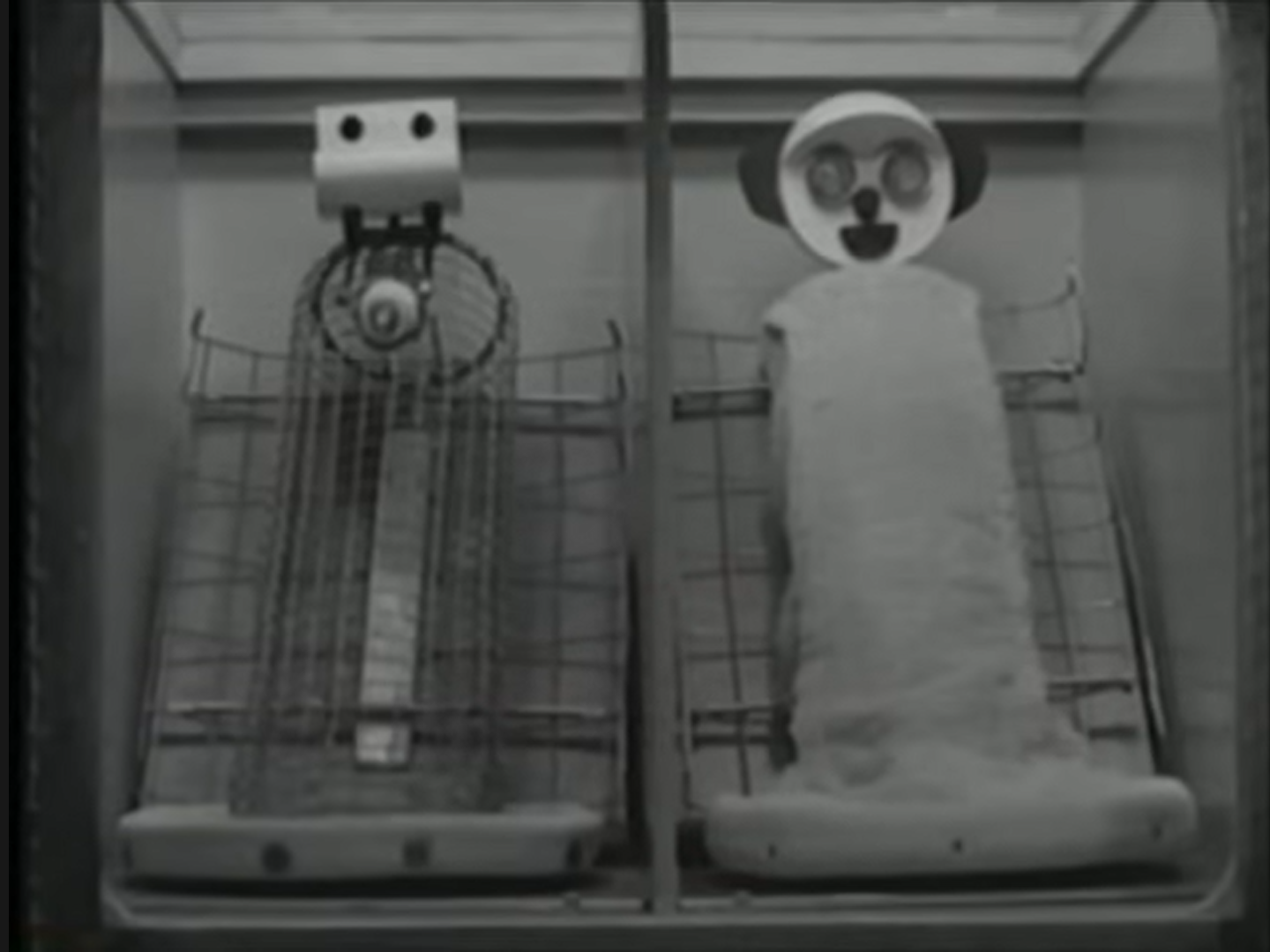
You’d probably expect the young monkeys to spend as much time as possible with the wire mother because, come on, who doesn’t like food?
And even if you for some reason don’t like food, you need it anyway to survive.
The “logical” thing to do would be to go the wire mother for food security, but the young monkeys in the experiment actually spent the bulk of their time with the cloth mother, and only went to the wire mother for milk.
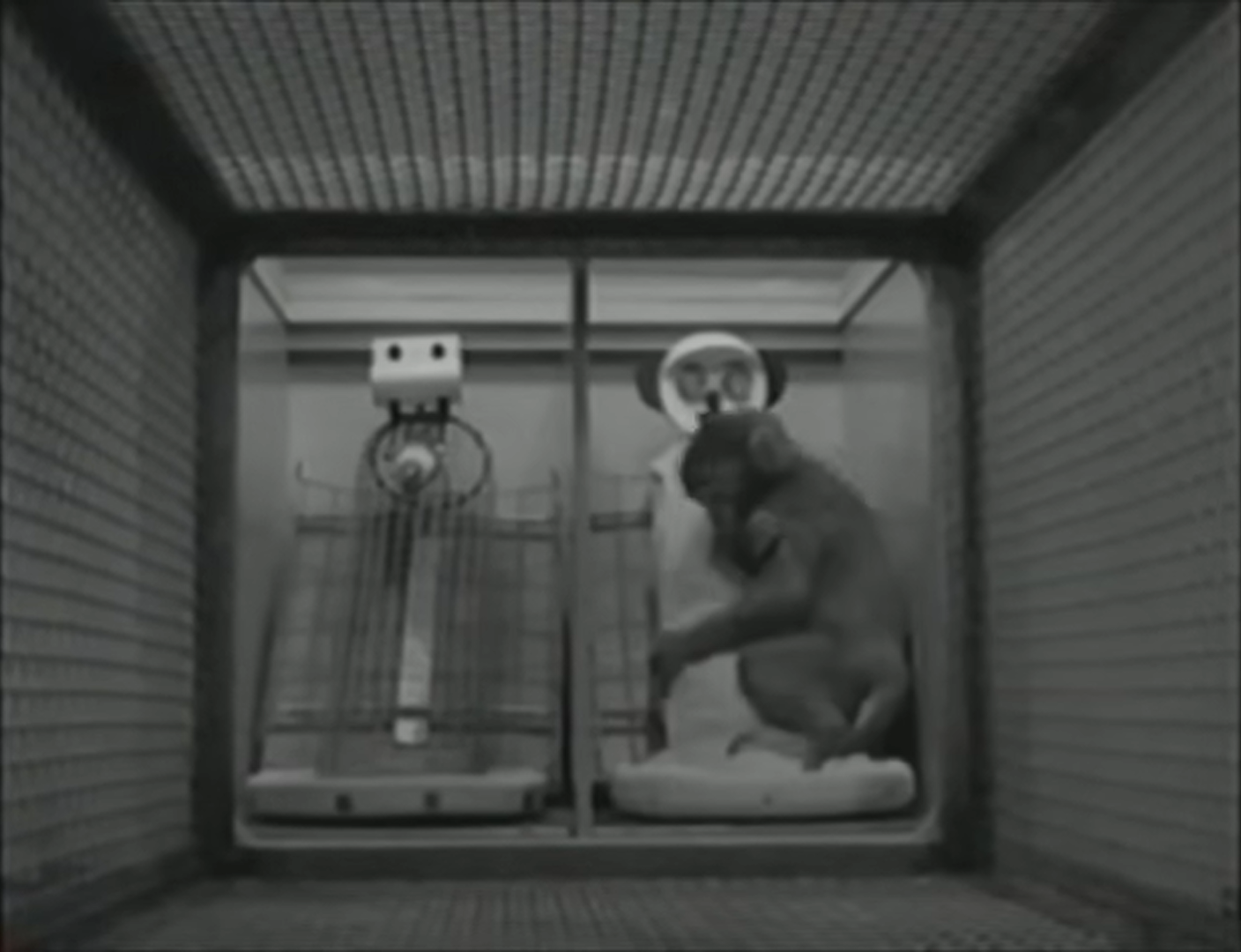
One monkey even spent 17 to 18 hours a day with the cloth mother, but only less than an hour with the wire mother each day.
This experiment showed how much the monkeys valued the comfort of the cloth mother, which is known as contact comfort.
“We had predicted that the variable of contact comfort would be a variable of measurable importance. But we were unprepared that it completely overwhelmed and overshadowed all other variables, including those of nursing,” said Dr Harlow.
Contact comfort, which refers to the need for physical closeness and touching, is believed to be the foundation for attachment.
This brings us back to chou chous.
We’re hardwired to desire comfort from something, and chou chous deliver just that.
And if you don’t get it from chou chous, I’m not sure where else you’d get it from because I don’t think 20 year olds still sleep in bed with their parents every day… right?
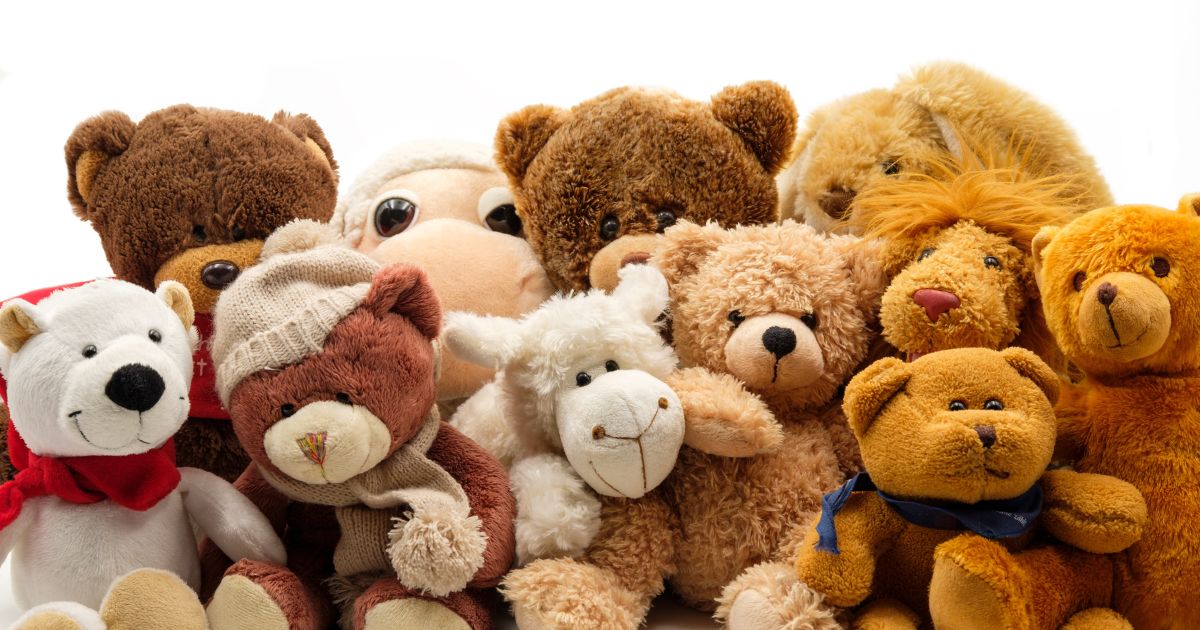
Study after study has proven that chou chous, or any other comfort object, can ease stress and anxiety, hence helping people sleep better.
You see, we’re happiest in our childhood.
When we’re children, there’s no such thing as taxes, work, bills, or any of that adult nonsense.
The biggest crisis we faced as children was probably if we should pick a pink or purple pencil case or if we should choose a Ben 10 or Transformers bag.
Our childhood was filled with happy memories like days at the playground and spending the whole day playing away. We felt comforted and protected as young children.
And, when we were children, we slept with our chou chous every night.
As the years went by, we began to associate our chou chous with the comfort of childhood.
Our senses of touch and smell are closely linked with our memories because after touching or smelling something, relevant information about that “something” is sent to parts of our brain, aka the hippocampus, which is responsible for memory, and the amygdala, which is responsible for emotional processing.
This causes our senses and memories to be interlinked, so memories and emotions are triggered when we smell familiar scents or touch familiar things.
Of course, other senses are linked to memory too, but I’m pretty sure you don’t lick your chou chou or anything.
At least I think you don’t. I hope you don’t.
So even as we grew up, sleeping with our chou chous would still trigger the same positive emotions, kind of like the opposite of PTSD.
As adults facing the horrors outside of childhood, we now use chou chous as contact comfort.
We’re basically baby monkeys trying to figure out life.
Even if you wash your chou chou again and again and again, the same smell will still come back since it basically comes from you.
So, for hygiene purposes, don’t be scared of washing your chou chou because its smell can always come back. Don’t wait until your chou chou turns black before finally deciding to wash it.
At that point, maybe just buy a new chou chou and start from scratch.
Even after many washes, your chou chou will still smell and feel like the same chou chou you held in your brighter days as a child, bringing you back to those happier moments when you were younger.
Though you may not feel like you’ve literally been transported back to your childhood, the same happy hormones are still released when you hug your chou chou, causing your stresses and worries to fade away.
So, give your chou chou extra love because it turns out, your chou chou is the one who has been by your side all these years, through all your ups and downs.
And wash it, please.
